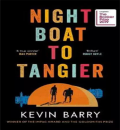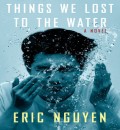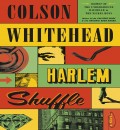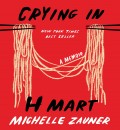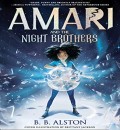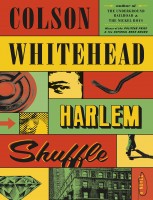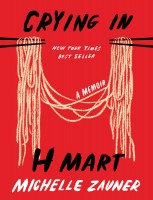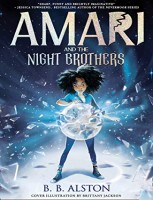Forgot Your Password?
Enter your email address
Forgot Your Password?
Enter OTP
Forgot Your Password?
Enter a new password below








Emma Healey
Elizabeth Is Missing by British author Emma Healey was published in 2014 and tells the story of Maud Horsham, an old woman suffering from dementia. Ma
Read more… 24/11/21
24/11/21 All ages
All ages

Nicholas Sparks
1996 was the year that changed everything for Maggie Dawes. Sent away at sixteen to live with an aunt she barely knew in Ocracoke, a remote village on
Read more… 14/11/21
14/11/21 All ages
All ages

Kevin Barry
Charlie Redmond and Maurice Hearne are Cork drug dealers, former big-time suppliers and users. Now into their 50s, their black money is squandered; th
Read more… 14/11/21
14/11/21 All ages
All ages

Kate Elizabeth Russell
Russell’s novel moves between present and past. The novel is divided into seventeen chapters, each defined by years in Vanessa Wye’s life before, duri
Read more… 14/11/21
14/11/21 All ages
All ages

Eric Nguyen
Nước — the Vietnamese word for country and water — permeates Eric Nguyen’s haunting debut. Signifying both a place of origin and the means by which a
Read more… 11/11/21
11/11/21 All ages
All ages

Colson Whitehead
In 1959, Ray Carney lives in Harlem with his wife Elisabeth, with whom he is expecting a second child. Although descending from a criminal family, Ray
Read more… 11/11/21
11/11/21 15 and up
15 and up

Michelle Zauner
An unflinching, powerful memoir about growing up Korean American, losing her mother, and forging her own identity.In this exquisite story of family, f
Read more… 11/11/21
11/11/21 All ages
All ages

B. B. Alston
Amari Peters misses her older brother Quinton, who has been missing for six months. When Amari receives a mysterious delivery, supposedly from Quinton
Read more… 11/11/21
11/11/21 All ages
All ages

Terry Lynn Thomas
Would you sell your secrets?Catherine Carlisle is trapped in a loveless marriage and the threat of World War Two is looming. She sees no way out… that
Read more… 10/11/21
10/11/21 All ages
All ages








 11/11/21
11/11/21 All ages
All ages
Things We Lost to the Water
Nước — the Vietnamese word for country and water — permeates Eric Nguyen’s haunting debut. Signifying both a place of origin and the means by which a boat refugee departs from such place of origin, Things We Lost to the Water poignantly explores all the ways in which Vietnamese refugees are affected by country and water — in sum, by dislocation.Told from multiple perspectives and spanning 27 years, from 1978 to 2005, Things We Lost to the Water gracefully manages to be both panoramic and specific, allegorical and literal. Most of the story takes place in New Orleans, Louisiana, with subsidized apartments, dilapidated shotgun houses, colorful duplexes, and the trash-strewn bayou — where refugees discard their unwanted mementos — as backdrop. At the novel’s outset, Hương has just arrived in the city with her two young sons, five-year-old Tuấn and baby Ben, after a harrowing escape by sea and a crowded, stressful stay at a Singaporean refugee camp. Công — Hương’s husband — has, at the last moment, chosen to remain in Vietnam. His absence will cast a long shadow upon the family in the ensuing years.

 11/11/21
11/11/21 15 and up
15 and up
Harlem Shuffle
In 1959, Ray Carney lives in Harlem with his wife Elisabeth, with whom he is expecting a second child. Although descending from a criminal family, Ray makes his living working as an upstanding furniture salesman on 125th Street. However, he occasionally fences stolen goods through his furniture store, including those from his cousin Freddie. Whereas Ray has steered his way toward an honest living, Freddie is descending into Harlem’s criminal underworld. Freddie orchestrates a robbery of the Hotel Theresa with his associates and volunteers Ray to fence what is stolen. The heist goes wrong and a cast of criminal figures enter Ray’s life, forcing him into a personal struggle between aspects of his fractured self. The novel is divided in three parts and covers three separate capers, set in 1959, 1961 and 1964. It culminates with the Harlem riot of 1964.

 11/11/21
11/11/21 All ages
All ages
Crying in H Mart
An unflinching, powerful memoir about growing up Korean American, losing her mother, and forging her own identity.In this exquisite story of family, food, grief, and endurance, Michelle Zauner proves herself far more than a dazzling singer, songwriter, and guitarist. With humor and heart, she tells of growing up one of the few Asian American kids at her school in Eugene, Oregon; of struggling with her mother’s particular, high expectations of her; of a painful adolescence; of treasured months spent in her grandmother’s tiny apartment in Seoul, where she and her mother would bond, late at night, over heaping plates of food. As she grew up, moving to the East Coast for college, finding work in the restaurant industry, and performing gigs with her fledgling band–and meeting the man who would become her husband–her Koreanness began to feel ever more distant, even as she found the life she wanted to live. It was her mother’s diagnosis of terminal cancer, when Michelle was twenty-five, that forced a reckoning with her identity and brought her to reclaim the gifts of taste, language, and history her mother had given her.

 11/11/21
11/11/21 All ages
All ages
Amari and the Night Brothers
Amari Peters misses her older brother Quinton, who has been missing for six months. When Amari receives a mysterious delivery, supposedly from Quinton himself, it seems like she might be getting closer to finding out where he is. But to go further, she has to take an enormous leap of faith, and attend summer camp at a covert supernatural organisation. Amari enters the intensive training program at the Bureau of Supernatural Affairs, competing with hundreds of other kids for coveted traineeships. She tries to stay focused on finding out what happened to Quinton, but gets swept up in the Bureau’s battle against an evil magician.





















